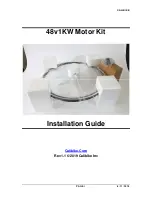
25
Brake pads need replacing when the friction
material is worn, contaminated or damaged.
Don’t wait until the friction material is worn
through to the backing plate to replace the pads.
To maintain safe and efficient braking, the pads
need to be replaced if the material is worn down
to 0.5mm.
Replacing Brake Pads – follow the instructions
that are supplied with your brakes. Parts and
spares are available from ICE.
Adjusting mechanical disk brakes
Mechanical disk brakes work with standard
brake cables and as such can be easily
adjusted.
To adjust cable tension you can use the barrel
adjuster on your brake lever, or for major
adjustments the cable can be pulled through the
clamp on the caliper.
Calipers can be adjusted from side to side and
most have independant pad adjustment for fine
tuneing your brakes.
CAUTION:
If you are not confident about servicing
your brakes correctly, we strongly
recommended that you have a
competent cycle mechanic service
your disc brake system. Always wear
protective clothing, safety glasses and
gloves when servicing this system.
!
5.4 Disc brakes
Disc brakes (mechanical or hydraulic) require
regular attention and maintenance. The most
common task is replacing the disc pads. These
will wear under normal use and will require
periodic replacement to keep the brakes working
properly.
Your disc brakes may squeal under braking.
This is normal, and will change depending on
how worn the pads are and how damp or cold
the rotor is. A brake which is hot and dry will
rarely squeal.
The braking performance will be severely
reduced if the system is contaminated. Clean
the calipers, lever, and rotors with water
and a clean cloth. If the disc rotor becomes
contaminated with oil or grease, it can be
cleaned by wiping with a cloth with isopropyl
alcohol or disc brake cleaning products
designed specifically for disc brakes. It is almost
impossible to properly clean contaminated pads;
they should be replaced.
Check the caliper and lever for any signs of fluid
leaks and the hose for any damage such as
chafing or being roughly handled. A damaged
hose could cause a system leak, which will
severely impair braking performance or cause
the brakes to fail.
Bleeding hydraulic brake systems
Bleeding the brake system is a procedure where
new hydraulic fluid is used to replace leaked oil
or to flush out any trapped air. Air in the system
will reduce the braking performance and the feel
of the brake. To bleed your brakes, follow the
instructions that were supplied with your brakes.
Parts and spares are available from ICE.
Your brakes use mineral oil, which is not the
same as hydraulic fluid used for automotive
brakes and clutches. Using automotive fluid will
ruin the seals in your brakes and they WILL fail!
Always use mineral oil; a good source is LHM
mineral oil used in many Citroen and Jaguar
motor vehicles. One litre is inexpensive and will
last you a lifetime.
Note:
Always refer to, the separate
manufacturers brake system
manual supplied with the trike.















































